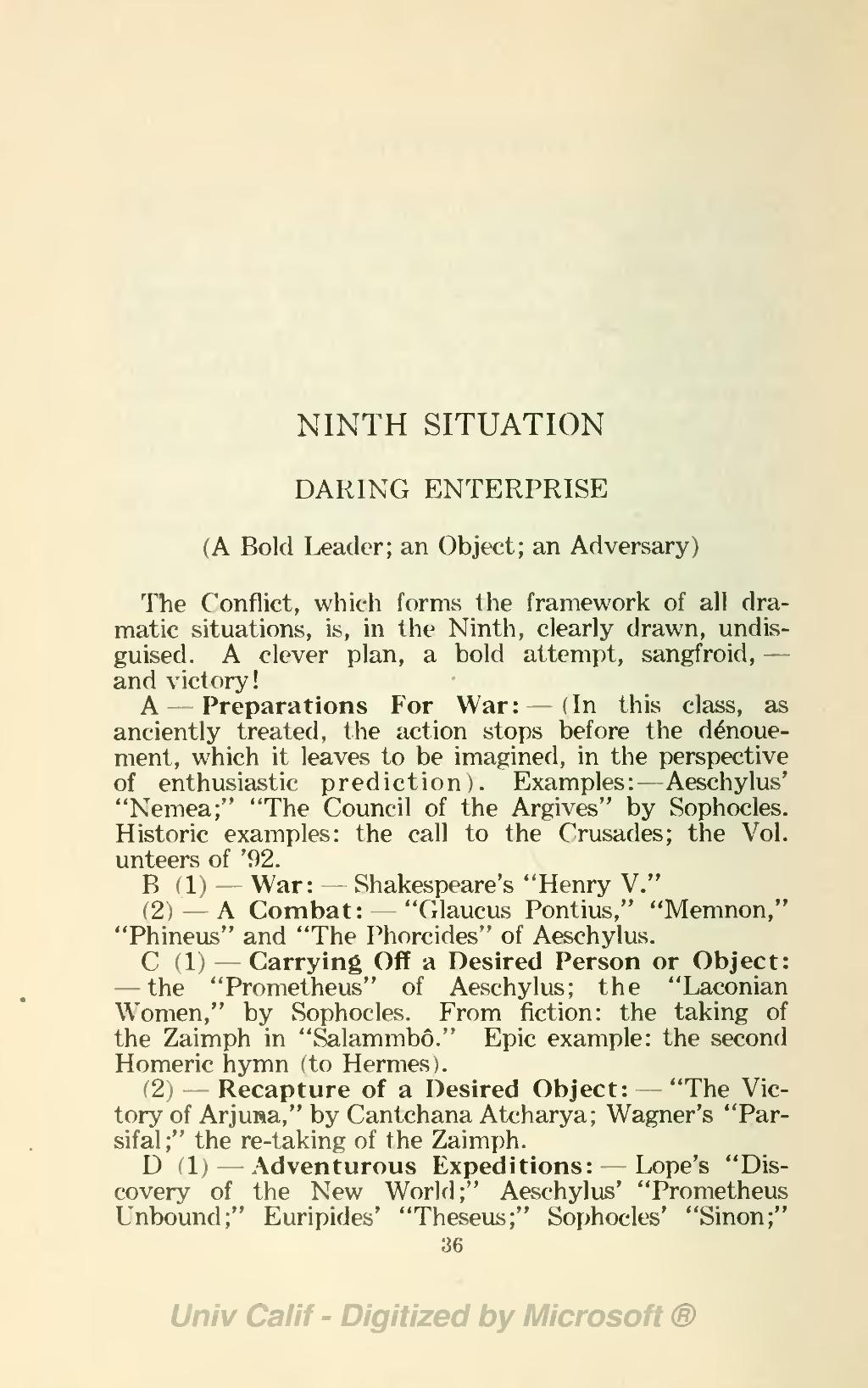NINTH SITUATION
DARING ENTERPRISE
(A Bold Leader; an Object; an Adversary)
The Conflict, which forms the framework of all dramatic situations, is, in the Ninth, clearly drawn, undisguised. A clever plan, a bold attempt, sangfroid, — and victory!
A — Preparations For War: — (In this class, as anciently treated, the action stops before the denouement, which it leaves to be imagined, in the perspective of enthusiastic prediction). Examples: — Aeschylus' "Nemea;" "The Council of the Argives" by Sophocles. Historic examples: the call to the Crusades; the Volunteers of '92.
B (1) — War: — Shakespeare's "Henry V."
(2) — A Combat: — "Glaucus Pontius," "Memnon," "Phineus" and "The Phorcides" of Aeschylus.
C (1) — Carrying Off a Desired Person or Object: — the "Prometheus" of Aeschylus; the "Laconian Women," by Sophocles. From fiction: the taking of the Zaimph in "Salammbo." Epic example: the second Homeric hymn (to Hermes).
(2) — Recapture of a Desired Object: — "The Victory of Arjuna," by Cantchana Atcharya; Wagner's "Parsifal;" the re-taking of the Zaimph.
D (1) — Adventurous Expeditions: — Lope's "Discovery of the New World;" Aeschylus' "Prometheus Unbound;" Euripides' "Theseus;" Sophocles' "Sinon;"

